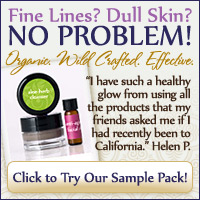What’s The Label That Means The Most; Natural Or Organic?
When it comes to product labeling the terms Natural and Organic are causing a little confusion for some folks.
Which food label do you look for when you want the food with the finest and most healthful ingredients? I was very surprised to learn what the answers to a survey, conducted by the Shelton Group, revealed.
31% of the respondents believed the label “100 Percent Natural” represented the SUPERIOR product, compared to only 14% of the respondents that thought the “100 Percent ORGANIC” label represented the MORE Healthful choice.
I’m hoping YOU are one of the minority that KNOWS Organic is better? If you guessed Natural was the product label that represents the higher quality product, I’m GLAD you’ve landed on this page, and after reading this, you won’t be deceived anymore.
What Is The Difference Between Natural And Organic Anyway?
When it comes right down to it, products labeled Natural are mostly JUNK! Sure…. There are some exceptions, but GENERALLY Speaking, products labeled Natural have NO Standard to live up to.
That’s right. There’s not even a legal term for the word “Natural” when it comes to product labeling.
The closest thing Natural has to a standard was set by the FDA in 1993. The FDA basically stated that the term Natural should be used truthfully and products labeled as Natural should not have any added colors, synthetic substances, or artificial flavors.
So let’s just say, companies labeling Natural FOLLOWED these GENERAL guidelines; Would that give you some pretty Good Natural Products?
Not REALLY…. Unless you consider Genetically Modified Organisms (GMO), Grown in Depleted Soil, then BATHED in Chemical Fertilizers and Pesticides throughout their growth cycle, Good Natural Products.
Bottom line is, if it’s not Organic or BETTER, it’s generally made from the cheapest ingredients available. When it comes to what you put in your body, cheapest is almost NEVER the best.
The word NATURAL on a product label should be viewed for what it Generally IS; A Marketing Term.
Natural SELLS, and it makes the buyer FEEL like they’re making a healthful choice; Even though they’re buying LOW quality, and often bad for the health, products.
What we’ve just reviewed is enough evidence to make you think twice about buying All Natural Vs Organic, but there is more to it than this.
Start reading the ingredient lists of products you find labeled Natural and you’ll find they often include ingredients that violate the very General Guidelines laid out buy the FDA in 1993; You’ll SEE the label Natural is often very misleading.
Organic on the other hand is the TRUE Natural. For a product to be labeled Organic it MUST meet standards laid out by the USDA, and although I’d make the standards even HIGHER, they’re pretty good as they are.
So… Should You Ever Buy Natural?
Sure! If you find a product labeled Natural Almonds, for example, and the ingredient list says Natural Almonds, at least you know you ARE getting Almonds; Exactly what you wanted. But… Organic Almonds ARE More Natural. So There! Organic Wins. (:
Please let me know your thoughts on Natural Vs Organic in the comments section. Are you a Natural or ORGANIC Fan; Or does it matter to you?
